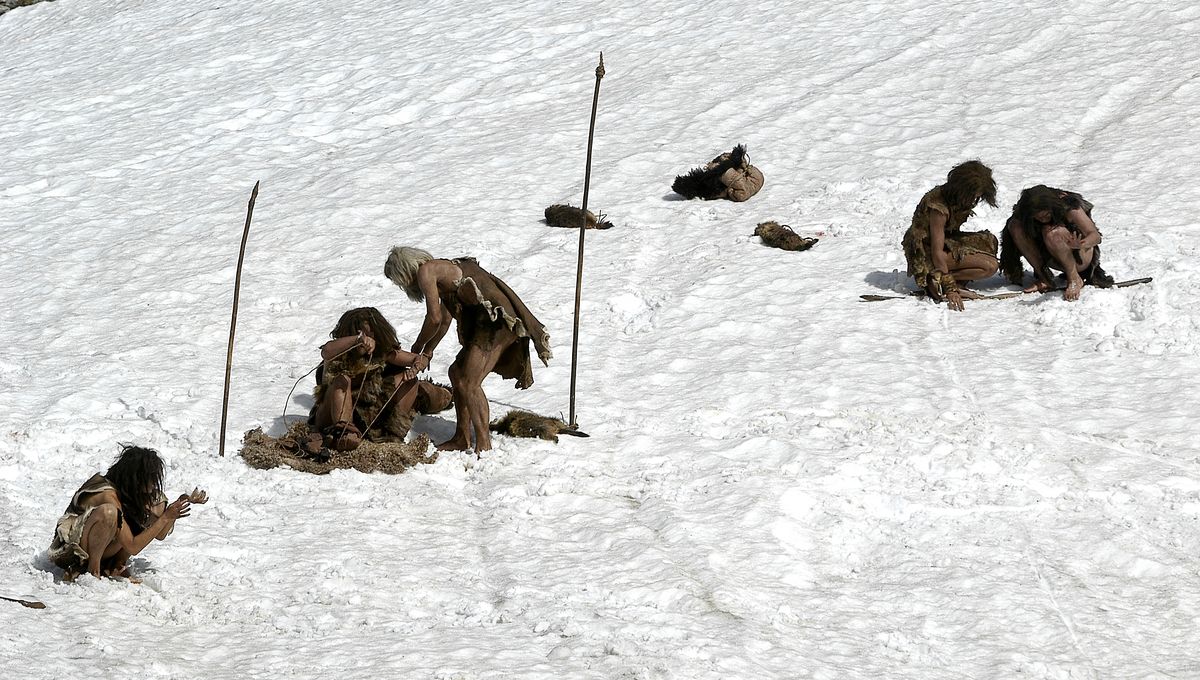
Neanderthals and other prehistoric humans have a reputation for being bloodthirsty brutes, existing on a diet of megafauna meat and the flesh of their enemies. But it wasn’t just flame-grilled scraps of mammoth on the menu. A wealth of evidence shows that Neanderthals had a taste for meat, but also understood the value of fine seafood and even vegetarian fare. Some populations, in fact, ate an entirely plant-based diet.
Just like Homo sapiens too, the day-to-day meals of Neanderthals would vary between environmental conditions and geographical locations, with different populations having to adapt their diets to the ecosystem around them.
Archaeologists have found extensive evidence of animal bones that were butchered for meat in parts of Eurasia that were inhabited by Neanderthals long before Homo sapiens arrived on the scene.
Along with hunting colossal creatures – including mammoths, aurochs, deer, and wild horses – archaeological remains show that Neanderthals were highly skilled killers of ferocious predators, like cave lions and bears.
They even ate banquets of Palaeoloxodon, a 13-tonne species of straight-tusked elephant that weighed twice as much as a mammoth.
It’s safe to say they weren’t hunting these beasts for entertainment. A 2017 study published in Nature analyzed the calcified dental plaque that had built up on the teeth of six Neanderthals living in a cave in present-day Belgium. They concluded that their diet was “heavily meat-based,” primarily consisting of woolly rhinoceros and wild sheep.
However, they reached very different findings when they studied Neanderthals who lived much further south in Spain’s El Sidrón cave. These individuals had almost no meat in their diet, instead living off a plant-based diet of mushrooms, nuts, moss, and other stuff you’d expect to gather from a European forest.
This probably wasn’t a matter of personal taste, but reflects the different environments inhabited by the two populations.
In a similar vein, we know that Neanderthals who lived by the coast often dined on seafood. Archaeological remains at Gruta da Figueira Brava in Portugal reveal that they harvested seafood from the seashore and rock pools. They were particularly fond of brown crabs (the bigger the better) cooked over an open flame. Researchers have also found the smashed bones of sharks, dolphins, seals, and eels at the Portuguese site, suggesting this group of coast-dwelling Neanderthals were true connoisseurs of seafood.
There’s even been the suggestion that Neanderthals were partial to cannibalism. The fossilized bones of Neanderthals found in caves across Europe display distinctive cut marks that suggest flesh was stripped upon their deaths.
Some have argued that cannibalism was an act of desperation for Neanderthals who had been put under extreme pressure from environmental changes. Others believe it might be a sign of highly complex, ritualistic behavior.
Either way, it does appear that Neanderthals ate very similar things to the diet of palaeolithic Homo sapiens: often animal meat, seafood, vegetation, fungi, foraged goods of the forest, and – occasionally, but more often than we’d like to think – the flesh of their own species.
Source Link: What Food Did Neanderthals Eat To Survive In The Ice Age?